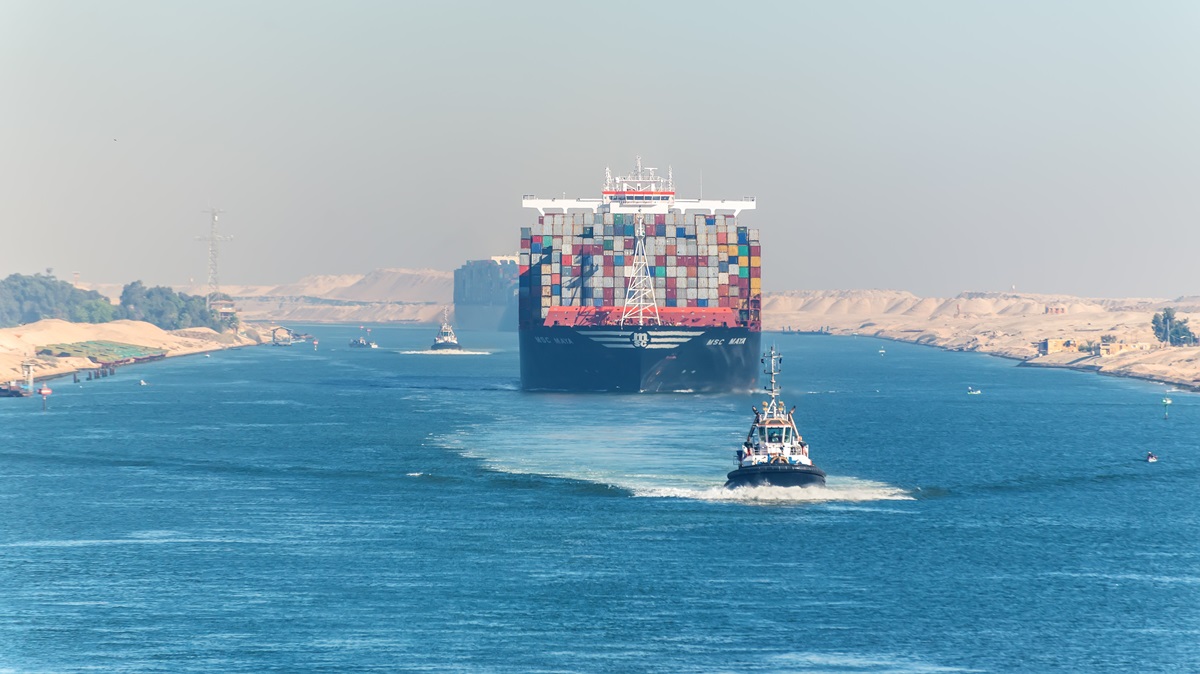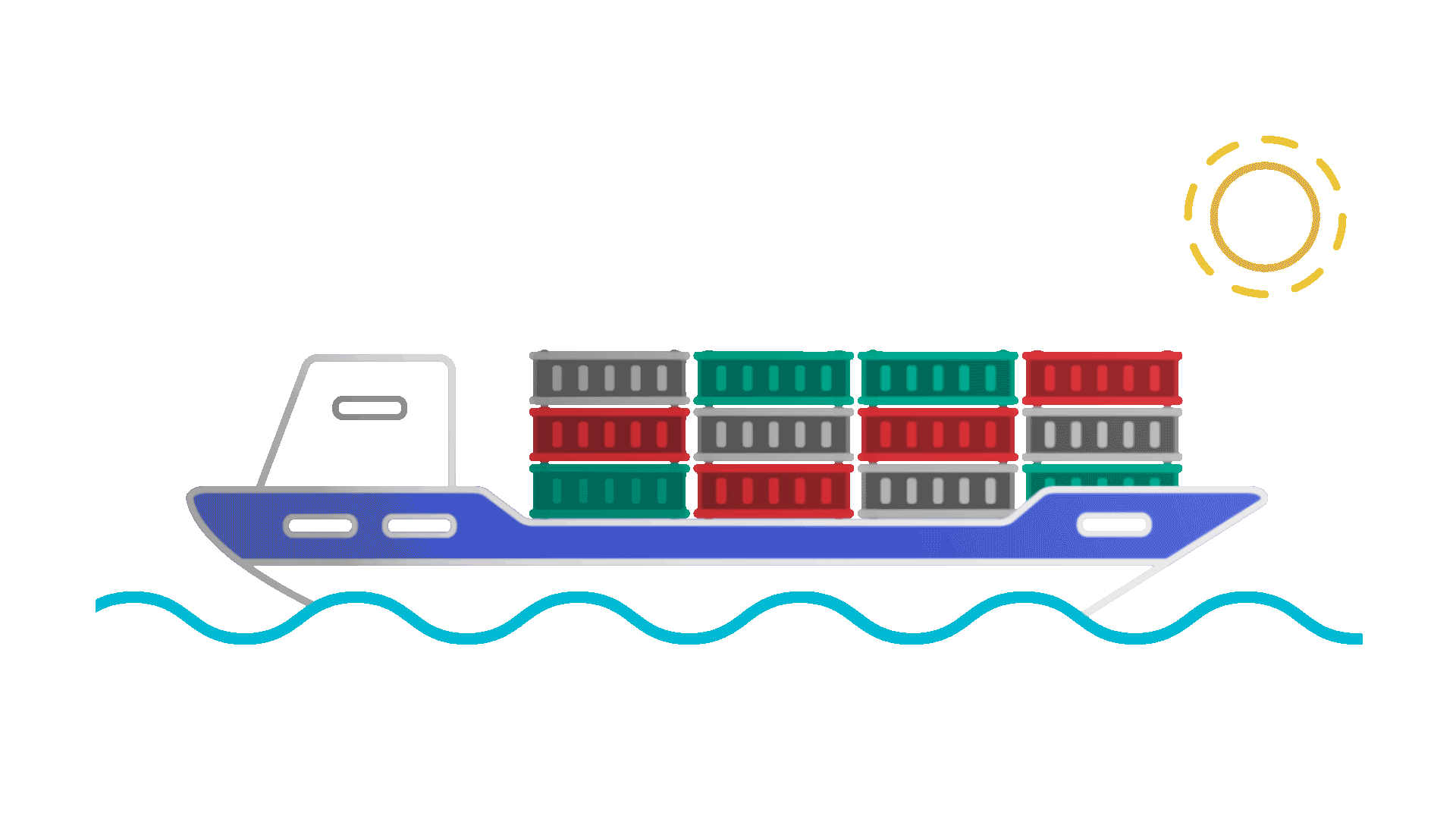From the Red and Black Social Conflict of Stendhal to the Red and Black Seas of Conflicts of Ideologies and Power Disputes

International Trade Navigating in Trouble Waters and Moody Conflictual Swing.
Once more International Trade since the First World War International Competition, International Rivalries, International Geopolitical Interests, and International National Interests Can become the Justification for Invasion and Punitive Expeditions that can be also the Sparks that Can Link All the Ingredients of these Factors of Dissensions and Divisions in One Big Conflagration of Regional Zones of Tensions and Conflicts that can be colliding with each other with time, pretexts and intensity to became War of Civilizations and Institutions.
In 2023, continued geopolitical tensions, ongoing regional conflicts, and supply chain uncertainty had a tangible impact on international trade.
Disruptions in the Black Sea and Panama and Suez Canals
The Suez Canal, a critical waterway connecting the Mediterranean Sea to the Red Sea, handled approximately 12% to 15% of global trade in 2023. UNCTAD estimates that the trade volume going through the Suez Canal decreased by 42% over the last two months.
At this juncture of troubling waters and muddy space, the Middle East can become the driving force behind the regional configuration and conglomeration of the Fractional Pieces for Peace or the pits of fire to spread over and become the Breaker of the International Market as Inherited from the Bretton – Woods Accords and the related establishment of the Institutional framing organizations as the Channels and the Conditioning structures for the exchange between the adhering nations.
What are the other avenues or road maps that will preserve the already-acquired privileges and advantages?
At the level of entreprises and compagnies, there is an approach that can reduce this exposure and risks that are conveyed by the clashes of civilizations and cultures of past history.
A questioning of the permissive conditions for the continuation of methods and forms of commercial exchanges can lead to the main point of dispute among advanced and less advanced economies. This question is centered on the valorization of countries as contributors in the international trade which are schematically divided between 3 large categories:
- – The Producers of Natural Resources,
- – The Manufacturers of Consumer Products,
- – The Investors and the Owners of High Technologies.
- – The Emerging Group of Countries that have Dual Form of Integration in the International Trade
Along with the added value of their manufactured products, they are countries that are hostage to the production of raw materials and natural resources without means of processing or in many cases without a knowledge of their process transformation and even control of the international circulation and exchange of their mining and natural resources.
A never concluded debate is also at the level of the formation and convertibility of value in its realization as added which since Ricardo and Marx debate has not yet been clearly defined, established in its applications and definitions at the level of the countries in progress of development characterized by economies that have not reached a high level of capitalization and reproduction of capital as national investment without recourse to international borrowing.
This shortfall remains in our time one of the fundamental pillars in the questioning of international trade clauses deeply planted by Western leading countries through all forms of regulation, declaration, conduction and monetization including the countries of the South can only adopt and accept forms of relationships in which they will have to increase their contributions without receiving the fair return and income.
Some challenges that are currently affecting global trade include:
- – The U.S.-China trade war
- – The Taiwan Strait crisis
- – The East China Sea dispute
- – The South China Sea dispute
- – Russia’s invasion of Ukraine
- – The Middle East conflict, Gaza, Syria, Lebanon, Irak, Saudi Arabia, Yemen, Sudan
- – Africa: Military Coups, CEDEAO Crisis, the Withdrawal of Sahel Countries, Ethiopia and Tigray, Mozambique, Democratic Republic of Congo, Central African Republic, Libya
- – Investment, Trade and Geostrategic Rivalry between USA, European Union, Russia, China and Turkey in Africa
- – Recent attacks on ships in the Red Sea by the Houthis, Response of the U.S. and U.K. with threats to Iran, considered as the Backers of the Houthis of Yemen
- – Geopolitical tensions affecting shipping in the Black Sea
Geopolitical risks are the potential political, economic, military, and social risks that can emerge from a nation’s involvement in international affairs. They typically emerge whenever there is a major shift in power, a conflict, or a crisis.
Other challenges that are affecting trade include:
- The strategic competition between the US and China
- The UK’s departure from the European Union
- Ongoing supply chain disruptions
- Climate disasters
- Political actions
Governments like Companies pursue their interests and develop relations around such principle that continuously need to be consolidated and reaffirmed as the priority for international interactions and regional collaborations. Political risk management is one of the major instrument to conduct and have in place to elevate the level of conscience and establish new forms of communications and responses with the major influencing elements and causes of the eruption and spread of detrimental consequences resulting from political events on a national or global scale, such as an armed conflict, constitutional referendum, election, or major policy developments. Changes in legislation or policies can also present a political risk for an organization.
Here are some ways to reduce political conflict affecting international trade:
- Negotiate: Diplomatic negotiations are a key way to resolve conflicts and prevent wars.
- Mediate: Mediation is a peaceful way to manage conflicts. It offers many advantages, and has been studied by scholars, practitioners, and students of political science, psychology, business management, and law.
- Develop conflict resolution skills: These include mediation, dialogue facilitation, and consensus-building.
- Set rules: Settling differences by talking and agreeing on rules is vital for reducing tension.
- Use the WTO: Members can request the establishment of a panel to settle disputes if negotiations are not possible. The panel will issue a report, which can subsequently be appealed before the WTO’s Appellate Body on questions of law.
- Promote Reformed and Fair Free Trade: Free trade between countries could reduce international conflict because trade forges connections between nations and gives each country an incentive to avoid war with its trading partners.
Basically many of these approaches had reach their limit in setting a path of collaboration and share of the same views on the resolution and anticipation of new antagonisms.

Red Sea, Black Sea and Panama Canal: UNCTAD raises alarm on global trade disruptions | UNCTAD
The UN’s trade and development body, UNCTAD, has raised profound concerns over escalating disruptions to global
According to a February 2024 article, the current challenges highlight the vulnerability of trade to geopolitical tensions and climate-related challenges. The article also states that collective efforts are needed to find sustainable solutions, especially for countries that are more vulnerable to these shocks. … Read more
